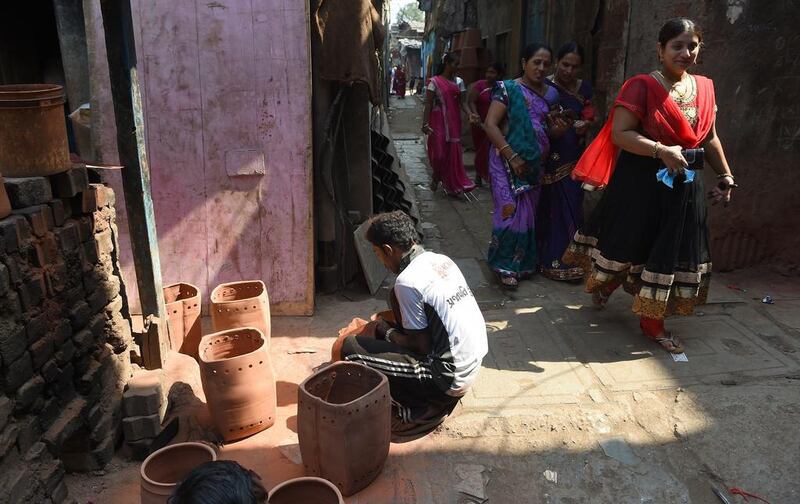The three-week long Alley Galli Biennale in Mumbai’s Dharavi slum includes 22 workshops, called artboxes. During the festival, the venues — Jeevan Hall, Colour Box and Swami Vivekanada Society — are a hive of activity, with artists at work and hundreds of visitors stopping by to view artistic displays on health, social problems and recycling.
Aside from being held every other year, the festival has little in common with some of the world’s better-known art fairs, said co-director David Osrin, who in a presentation this month described the name as “slightly a joke, and slightly ideological. The spirit and the way that our biennale is structured is very different.” While other festivals simply ask artists to submit works, the focus in Mumbai has been on participation with Dharavi residents, particularly through workshops led by “mentor” artists..
The projects include comic strips depicting residents’ experiences with food safety, and installations, some with block prints and painted pots, featuring locally made pots and block-printed cloth that tackle subjects such as depression and sexually transmitted diseases.
Billboard painters have applied their brushes to canvas for the first time to create portraits of Dharavi’s Healers, legal practitioners of informal medicine within the slum. Contributing to the event are architects Prakriti Shukla and Venkat Ashok, who’ve created upcycled furniture from the tons of plastic waste recycled in Dharavi.
Sticking to sustainable, pro-health agendas while creating the exhibits also proved tough, said urban gardener Adrienne Thadani, who worked on the project “Growing Fresh Air in Dharavi” promoting the use of plants indoors to stay healthy.
“By using locally crafted clay pots to create easily replicable home gardens, we were working with kilns fired with synthetic scraps and used oil rags, which was polluting the area further,” she said.
Film screenings include Indefensible Space, a movie by new newbie filmmakers from the slum who have been mentored by New Delhi-based filmmaker Manish Sharma. Indefensible Space brings to light the lack of sanitation and women’s safety in the community.
Also in the line-up is a play about tuberculosis that features life-size, brightly painted papier-mâché puppets made by Dharavi residents.
[ artslife@thenational.ae ]










